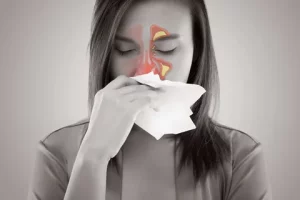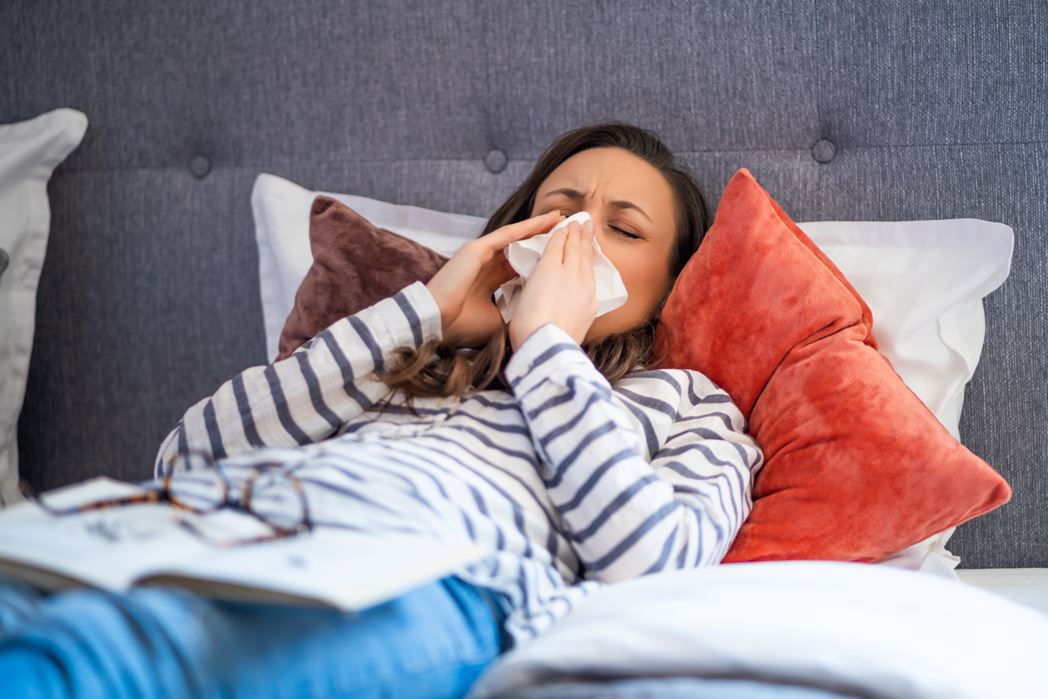Introduction
Allergy season, with its blooming flowers and pollen-laden air, can wreak havoc on your sinuses. But did you know it could also be the sneaky culprit behind your louder snoring? In this comprehensive guide, we delve into the relationship between allergies and snoring, uncovering how seasonal allergies can exacerbate snoring and what you can do to find relief. You Need To Know About Other Health Problems Or Their Solutions (Dehydration Triggers Headache)
Understanding the Connection
How Allergies Impact Breathing
When allergies flare up, your body’s immune system goes into overdrive, releasing histamines to fight off perceived threats like pollen, dust, or pet dander. This immune response can lead to inflammation and congestion in your nasal passages and throat, making it harder to breathe freely.
The Role of Nasal Congestion
Nasal congestion is a hallmark symptom of allergies, causing your nasal passages to become swollen and obstructed. This congestion restricts airflow, forcing you to breathe through your mouth instead of your nose. Mouth breathing, especially during sleep, can increase the likelihood of snoring as the soft tissues at the back of your throat vibrate more intensely.

Allergic Rhinitis and Snoring
Allergic rhinitis, commonly known as hay fever, is a type of allergy that affects the nose and sinuses. Studies have shown that individuals with allergic rhinitis are more prone to snoring due to nasal congestion and inflammation. Additionally, the repetitive cycle of mouth breathing and snoring can further exacerbate allergy symptoms, creating a vicious cycle of sleep-disordered breathing.
Managing Allergies to Reduce Snoring
Consultation with an Allergist
If you suspect that your snoring is related to allergies, it’s essential to seek guidance from an allergist or an ENT (ear, nose, and throat) specialist. They can conduct allergy testing to identify specific triggers and develop a personalized treatment plan to manage your symptoms effectively.
Allergy Medications
Antihistamines, decongestants, and nasal corticosteroids are commonly prescribed medications for managing allergy symptoms. These medications work by reducing inflammation, alleviating congestion, and minimizing the risk of snoring associated with nasal obstruction.
Allergen Avoidance Strategies
To minimize exposure to allergens, consider implementing the following strategies:
- Keep windows closed during peak pollen seasons.
- Use air purifiers with HEPA filters to remove airborne allergens.
- Wash bedding regularly in hot water to eliminate dust mites.
- Vacuum carpets and upholstery frequently to reduce pet dander accumulation.
Nasal Irrigation
Nasal irrigation, often performed using a saline solution or a neti pot, can help clear nasal passages and alleviate congestion. By flushing out irritants and allergens, nasal irrigation can improve airflow and reduce snoring intensity.
Continuous Positive Airway Pressure (CPAP) Therapy
For individuals with severe allergies and obstructive sleep apnea (OSA), CPAP therapy may be recommended. CPAP machines deliver a steady stream of air through a mask worn over the nose or mouth, preventing airway collapse and maintaining unobstructed breathing during sleep.

Allergy Immunotherapy
Allergy immunotherapy, also known as allergy shots, involves administering gradually increasing doses of allergens to desensitize the immune system. Over time, this can reduce the severity of allergic reactions and alleviate associated symptoms, including snoring.
Allergy Medications Overview
| Medication Type | Mechanism of Action | Benefits | Side Effects |
|---|---|---|---|
| Antihistamines | Block histamine receptors, reducing symptoms | Relieves sneezing, itching, and runny nose | Drowsiness, dry mouth |
| Decongestants | Constrict blood vessels in nasal passages | Reduces nasal congestion, promotes drainage | Increased heart rate, insomnia |
| Nasal Corticosteroids | Reduce inflammation in nasal passages | Alleviates nasal congestion and inflammation | Nasal irritation, nosebleeds |
Conclusion
Allergy season may be an unexpected contributor to your louder snoring, but understanding the connection between allergies and snoring is the first step towards finding relief. By effectively managing your allergies and addressing nasal congestion, you can minimize snoring and improve the quality of your sleep. Consultation with a healthcare professional is key to developing a personalized treatment plan tailored to your specific needs. Don’t let allergies hijack your sleep – take proactive steps to breathe easier and sleep soundly, even during allergy season.




